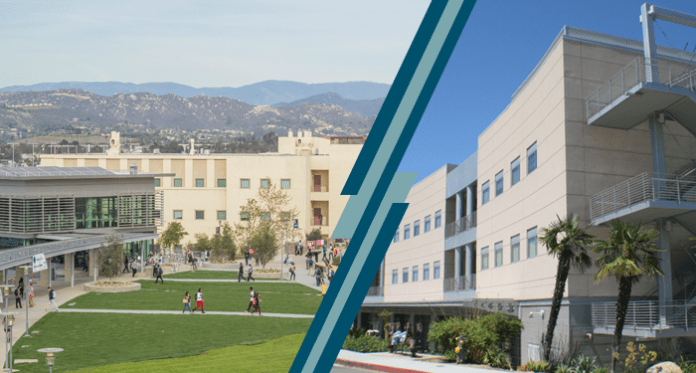COVID-19 certainly surprised us all. As public health mandates were implemented and businesses responded, it became clear that no industry was safe from COVID – even the ones we traditionally think of as “recession proof.” Instead, many organizations had to adapt quickly (very quickly) to ever evolving protocols because, pandemic or no pandemic, people needed them.
Educational institutions in San Marcos did just that.
San Marcos is a hub of education with eight institutions of higher learning, so when COVID-19 impacted campuses mid-semester, our educational leaders had to adjust quickly. California State University San Marcos (CSUSM) and Palomar College, for example, both pivoted to online learning offerings in a just few days, which is no small feat considering the adjustments necessary to evolve experiential classes (laboratories, student teaching, art studios, internships, performances, community engagement, group projects, etc.) to an online setting.
“We were able to transition to distance learning in four days,” said CSUSM President Dr. Ellen Neufeldt. “So much credit needs to go to our faculty and staff for adapting so proficiently. Of course, some classes were easier than others, but I am really proud of how quickly we were able to respond to the realities of COVID-19 and maintain our level of student support.”
Similarly, Palomar College’s acting Superintendent/President Dr. Jack Kahn remarked at how the challenge of transitioning to distance learning provided some collateral benefits that can be applied to future semesters. “We have seen several instances of improved practices, innovations and collaborations across the campus,” said Dr. Kahn. “We have also provided an incredible amount of professional development to faculty and staff over the last months which has also helped us prepare [for future semesters].”
Both institutions strongly emphasized their commitment to fostering continued student success efforts, even with new dynamics resulting from online courses, and they see a potential for online education to reach new students in the future.
“As faculty are learning more and getting excited about opportunities we believe there will be more online options in the schedule in the future,” continued Dr. Kahn. “By increasing these options, we will increase access to education, especially for our students who typically hold down one or more jobs in order to make a living in San Diego County.”
Dr. Neufeldt echoed the value of blending online with in-person pedagogy and noted the need for “innovation for all.” “We stand ready to serve and support our students find a sense of community during COVID,” said Dr. Neufeldt. “Our campus has been committed to serving the needs of our community since the beginning, and the adjustments we’ve made in response to COVID are inspiring us to innovate our way forward.”
As public health restrictions are rolled back, CSUSM and Palomar College are looking forward to striking the appropriate balance between online and in-person learning to the benefit of students and the greater San Marcos community.
“By opening up access to education through our online delivery, many residents will find they are able to attend college while continuing to work in their current fields, raise a family, and continue to meet their obligations while improving their marketability through advancing their education,” said Dr. Kahn.
Cal State San Marcos also appreciates that by exploring new methods for making courses accessible remotely, it can strengthen its ability to provide a multitude of learning modalities that could potentially reach non-traditional students who are not recent high school graduates.
Planning for the fall semester is well underway and both institutions are currently offering robust online summer sessions with full enrollment numbers.
As COVID relief efforts continue and businesses reopen, San Marcos’ higher education leaders offer a reminder that they are here to serve the business community. “We always invite businesses to be our partners, so we can best serve our students and the City of San Marcos,” said Dr. Neufeldt. “We’re here to support our community now and beyond COVID.”



















